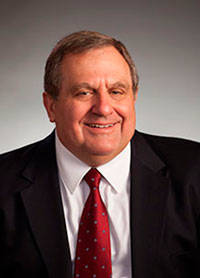It is no secret that airlines were clobbered by the coronavirus pandemic. What started as a promising year quickly went south. The COVID-19 outbreak has all but shut down travel.
Today, airlines operate at a fraction of capacity. The 3 million passengers carried by U.S. carriers in April 2020 was a 96 percent decline from April 2019, the Bureau of Transportation Statistics reports. To absorb the sudden blow, airlines parked planes, drastically cutback schedules, furloughed workers, and sought federal financial relief.
Like the rest of the airline industry, Alaska faces tremendous challenges. “Between business, international and leisure—people are worried about traveling,” Alaska Airlines President Ben Minicucci told Forbes. “With all these negative demand drivers, we see 2021 down 20 percent.”
Alaska Air Group, consisting of Alaska, Horizon and now Virgin America airlines, is Seattle-based. It is an important part of our economy. Nearly more than 40 percent of its 22,000 employees work in Washington. When indirect employment is tallied, it created nearly another 22,000 jobs statewide in 2017.
Alaska is the nation’s fifth largest domestic airlines behind American, Delta, Southwest and United which combined carry the bulk of the U.S. passengers. Alaska flew 7 percent of passengers before the pandemic arrived.
The airline industry is fiercely competitive. Alaska, which once partnered with Delta on frequent-flier programs, is now joining the OneWorld Alliance with American Airlines, British Airways and nearly a dozen foreign carriers.
The company’s strategic plan calls for new 737 purchases. That’s good news for our region’s economy and workers because the 737s are assembled in Renton.
A key reason Alaska Air is positioned to better survive is it has consistently been J.D. Power’s choice for “highest customer satisfaction among traditional carriers in North America.” In 2017, The Wall Street Journal has named it the No. 1 overall U.S. carrier, an award it had won since 2013.
A decade ago, regional airlines, such as Alaska, were supposed to fade away or be grabbed up by the big guys. Some industry analysts believed Alaska would not withstand the pressure from low-cost carriers such as Southwest. In fact, the opposite happened. Alaska keeps growing, and industry pioneers, namely TWA, Continental and Northwest, vanished.
Air Transport World stated: “In many respects, Alaska Airlines is the David of a consolidated U.S. airlines industry now dominated by Goliaths who control more than 80 percent of the domestic capacity. But this Seattle-based, fiercely independent carrier is not daunted by the challenges of maintaining its leading place in the U.S. Pacific Northwest.”
ATW said, “Alaska Airlines is a carrier that certainly won’t win awards for patience. ‘If it doesn’t exist, invent it,’ seems to be the modus operandi of the airlines.” For example, Alaska developed the advanced onboard navigation system that allows pilots to fly safely into terrain- and weather-challenged airports such as the one in Juneau.
Just as other iconic Washington companies are known for innovation, it has been vital to Alaska Air. Alaska revolutionized on-line ticketing and check-in. At airports, it relies on passenger-friendly kiosks to move fliers quickly through check-in to boarding flights.
If a problem develops, Alaska moves rapidly to solve it. When it started slipping in baggage performance, Alaska began barcoding every bag going on planes. Rather than waiting for bags to be sorted in terminals, Alaska loads carts from arriving flights and delivers them directly to connecting flights.
Fifty years ago, Boeing, Weyerhaeuser and PACCAR were the “crème de la crème” of Washington’s publicly traded corporations. Twenty-five years ago, Microsoft, Costco and Starbucks joined the list. Now, when people talk about our state’s top businesses, Alaska Airlines is a key part of that conversation.
Don Brunell, retired as president of the Association of Washington Business, is a business analyst, writer, and columnist. He lives in Vancouver and can be contacted at TheBrunells@ msn.com.



